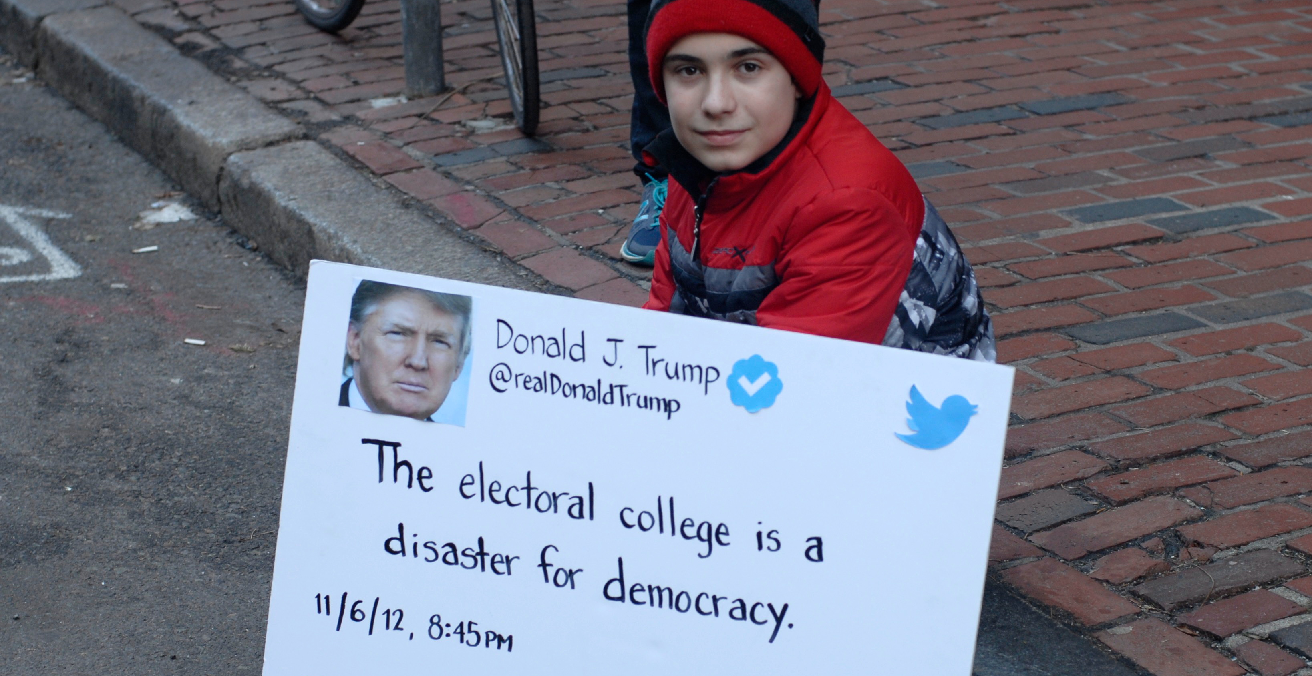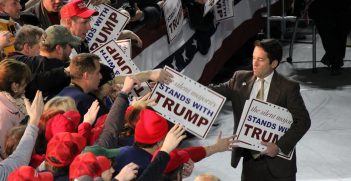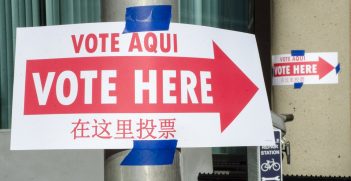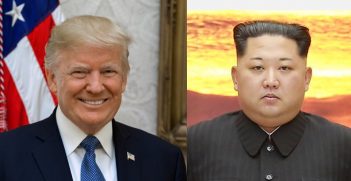What Goes Up Must Come Down - Trump’s Twitter Ban and the Limits of Free Speech

Trump’s recent suspension from social media platforms such as Twitter and Facebook raises questions about the limits of free speech in a functioning democracy. The recent move signals that while online platforms welcome debate, when it is accompanied by violence they must draw a line.
In January 2021, social media platform Twitter announced the permanent suspension of US President Donald Trump’s Twitter account. The suspension follows the recent storming of the US Capitol on Wednesday 6 January, during which Trump supporters engaged in rioting and looting, causing comprehensible damage to the symbol of American democracy. It is recognised by many Democrats, Republicans, and even loyal Trump supporters that the violence was encouraged by the outgoing president, with many claiming that social media became his weapon of choice.
Twitter’s decision to permanently suspend Trump followed an earlier twelve-hour suspension during the height of the riots. Other social media platforms, like Facebook and Instagram, followed in Twitter’s footsteps, suspending Trump’s account until the transition of power to Joe Biden has been completed. However, in the eyes of many, social media has engineered the conditions of violence and division which are now embedded within the US and the ban put in place to mitigate its proliferation is too little, too late.
Reasons for the suspension
Social media is not a heavily regulated industry. This was witnessed with full force when Brenton Tarrant live-streamed his subsequent massacre at the Al-Noor Mosque in Christchurch, New Zealand in 2019. However, many have relied heavily on the self-regulation of social media, primarily through their respective terms, conditions, and policies. These are intended to provide a minimum standard for respective users to adhere to sets of rules in regards to content posted. Trump’s initial twelve-hour suspension resulted from a tweet which was considered a violation of Twitter’s Civic Integrity Policy, which aims to uphold the integrity of civic processes such as political elections, censuses, referendums, and ballot initiatives. As a result, Twitter released an official statement discussing the background, the tweets from the President, and an assessment of the harm they could cause. The suspension was based on five principal factors:
- “President Trump’s statement that he will not be attending the inauguration is being received by a number of his supporters as further confirmation that the election was not legitimate.”
- “The Second Tweet may also serve as encouragement to those potentially considering violent acts that the inauguration would be a “safe” target, as he will not be attending.”
- “The use of the words “American Patriots” to describe some of his supporters is also being interpreted as support for those committing violent acts at the US Capitol.”
- “The mention of his supporters having a “GIANT VOICE long into the future” and that “They will not be disrespected or treated unfairly in any way, shape or form!!!” is being interpreted as further indication that President Trump does not plan to facilitate an “orderly transition” and instead that he plans to continue to support, empower, and shield those who believe he won the election.”
- “Plans for future armed protests have already begun proliferating on and off-Twitter, including a proposed second attack on the US Capitol and capitol buildings on January 17, 2021.”
Parler, Plato, and the Principle of Free Speech
The response by the President evoked a common theme, citing free speech as his primary defence. More specifically, Trump claimed that “Twitter has gone further and further in banning free speech.” Although the social media platform has often cited the same reason in its own defence, Trump’s ban exemplifies how when free speech leads to violence, Twitter and other social media platforms draw the line.
It is for this reason that President Trump has indicated his new social media platform of choice, Parler. Parler will become the new centre of Trump’s information sharing and connection. However, it is no surprise that Parler was selected by the president. It remains a household name among pro-Trump supporters, and the platform has accumulated a large support base from conspiracy theorists and right-wing extremists. The initial impetus for Trump’s transition to Parler rests in its foundational principle, “free speech,” with the social media platform remaining adamantly weak of self-regulation conditions and integrity policies. It remains a proverbial free-for-all in the online sphere.
However, following Trump’s announcement, various online stores have banned the downloading of the social media platform within the United States. For instance, Google has banned the social media network from its Play Store, citing “robust” content moderation was required. In a similar vein, Apple issued Parler a twenty-four hour deadline to submit a detailed moderation plan, of which a failure to comply would see Parler banned from the Apple Store indefinitely. The suspension measures come after the recognition that participants using the service coordinated the US Capitol siege on Parler.
So, with the oxygen being strangled away from Parler in recent days, let’s return to what remains the central issue, free speech and the limits of it. Perhaps to understand this point in a comprehensive manner, it is important to observe the historical conditions of free speech. After all, if we don’t know where we have come from, how will we ever appreciate where we are going? Plato, often considered the father of western civilisation remains a foundational starting point. Plato believed that the underlying driving force of democracy is freedom. However, he also affirmed that freedom is the very trait that leads a democracy into a tyranny. Democratic regimes centre on a plurality of interests and it is the principle of disagreement that embeds democracy with a stable foundation.
Plato also recognises that strong leaders will eventually become a thing of tyrants. The leader wants to be completely free, yet he is the most enslaved, by government and by the competing interests. He surrounds himself with yes-men and people who feed his ego and desires. This is reminiscent of the course that the 45th president of the United States appears to be following. What is evident of the events of the past week and the subsequent debate that will no doubt take place is with the foundational aspect of freedom, whether freedom should be defended regardless of its consequences. I argue that freedom should be defended, but we do not have to defend it when it gets things wrong.
Conor McLaughlin is the Research Coordinator in the Defence Research and Engagement Portfolio at Edith Cowan University (ECU).
This article is published under a Creative Commons Licence and may be republished with attribution.





